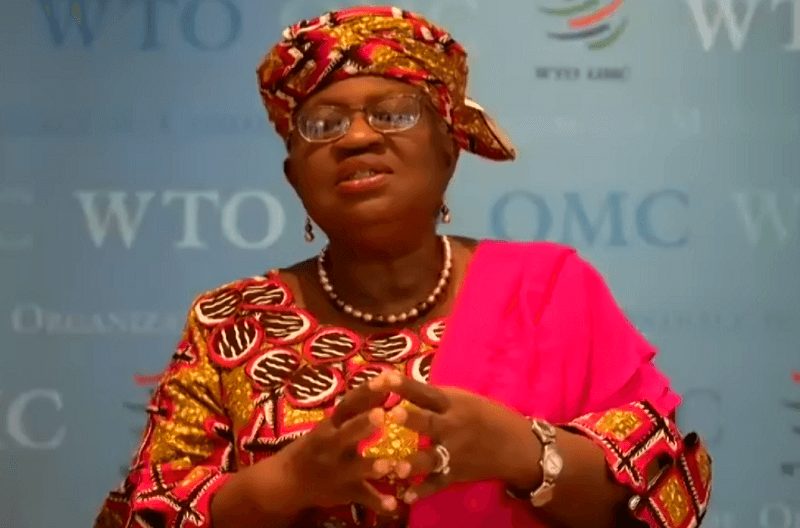AfCFTA: WTO Will End Boundary Barriers Among African Countries- Okonjo-Iweala
The Director-General of the World Trade Organisation, Ngozi Okonjo-Iweala has said that the organisation is ready to help the continent end cross border restrictions which could hinder the African Continental Free Trade Agreement.
Okonjo-Iweala said this on Tuesday during a virtual event organised by the Atlantic Council which was monitored by THE WHISTLER.
Advertisement
African countries have ratified the world largest continental trade body covering 1.2 billion people and a market estimated at $3trn.
She said, “Just like cross regional trade agreements it was based on WTO rules. So WTO has been a foundation for putting these rules together and hopefully we will be a companion as they try to implement.
“We are ready to do partnerships in various areas,particularly in areas of cross border movements and bridging the digital divide.”
Countries like Nigeria ratified the agreement in January, ending its over one year border closure directed by President Muhammadu Buhari in 2019.
Advertisement
In a retaliatory move to Nigeria’s closure of land borders, the Benin Republic reportedly stopped 3,700 Nigerian-bound cargo-laden trucks from Cote D’Ivoire, Ghana and Togo at the Ilakoji border which separates Togo and the Benin Republic.
The DG said, “Coming back I think there are two or three big senses you need to make about the continent to make it really work. One is all those obstacles with respect to movement. We have launched the area, but it is true that crossing borders for goods and services is still a problem.
“So our leaders have to come together and agree to reduce those barriers so that trucks can move. You don’t have to see an 8-mile line of trucks at any border waiting to cross. We need to obviously work together on infrastructure if we are going to be serious about this continental free trade area.
“I will start with the bureaucratic barriers.We can do away with a lot of them. Movement of people. The AU launched something which I am very proud of which is a one passport for Africans. I have a copy of the passport.
“The continent has really started on a good path. We just need to move faster and particularly on digitalisation. We need to move faster on those issues.”
Advertisement
She said to efficiently trade across the continent, countries need to invest more in adding value to the materials it produces.
Local companies also need to expand their base to other African countries, the WTO boss added.
She also said the continent must make an effort to bridge the digital divide.
She said, “We have a lot of work that we can do together to bridge the digital divide. We also have a lot of work we can do together on issues of sanitary and phytosanitary matters. We can do a lot to help the underground working together.”
Digital trading and e-commerce market is estimated at €1.5trn and €27trn, but the WTO lacks a comprehensive agreement on the both.
She said, “This pandemic has illustrated the trend the world is going digital, but i think the pandemic just heightened and highlighted this trend and what we see is that e-commerce has grown considerably and Small and Medium size businesses many more of them could have been shutdown if not for the fact that they could trade on the internet. This is something that has come to stay.”
Advertisement
She said digital trading facilitates the inclusion of women and SMEs.
Okonjo-Iweala added that in many parts of the world women own about 50 per cent of MSMEs and access to the internet will directly connect them with their customers.
She revealed that the WTO will come up with a rule guiding trading and e-commerce market at the 13th Ministerial Conference coming up next year.
She said, “You know for me, Digital is key. But in other to have a fair transparent and level playing field for digital trade and to solve many of the issues about cross border data flows underpin how to manage taxation issues and e-signatures and all these things that could make life much more easier to make payment, you need some form of agreement and so the WTO does not yet have an agreement underpinning this.”



